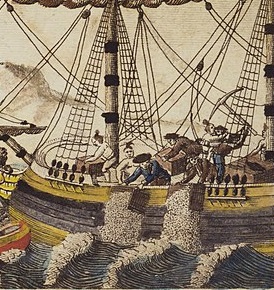
by Richard Subber | Dec 22, 2021 | Book reviews, Books, History, World history
Does history have “causes”…?
War and Peace, Second Epilogue
Leo Tolstoy
Translated by Louise and Aylmer Maude
Chicago: Encyclopaedia Britannica, Inc., 1988
Originally published in 1869
The Second Epilogue: Tolstoy’s reflections on history and its causes, and free will
Perhaps you know that Tolstoy appended two epilogues to War and Peace.
In the Second Epilogue, Tolstoy’s sometimes discursive style may impede the modern reader. It’s not boring, but it seems to be repetitious, and Tolstoy uses surprisingly mundane examples that may seem irrelevant to the modern reader.
It’s a Russian version of mid-19th century style. It seems to be relentlessly organized, using what Tolstoy presumably believed was an elaborate precision of language that tends to obscure and confuse his observations and conclusions.
I respect his ruminations about the nature and causes of history, the inevitability of historical events, and the possibly countervailing potency of human free will.
I confess that I am essentially unmoved by his conclusion that freedom of will and action is not a prime mover in human enterprise and human history.
I suspect that Tolstoy’s endorsement of “dependence on the external world, on time, and on cause,” and his acknowledgement of so-called “laws” that frame human history, is a manifestly inadequate description of the reality and the process of human history.
I suggest that Tolstoy went astray in his search for “cause” in human history.
Of course, there are forms and trends and ex post recognition of patterns in history. The longues durées exist, but they are only part of the story. There are recognizable, durable attributes of human nature. They are only part of the story.
Tolstoy almost forgets to mention the utterly contingent natures of historical reality, the historical process, human action, and the sequence of past events. One essential element of history is the continuous interaction of innumerable competing and complementary human behaviors and environmental circumstances.
History is the unpredictable single chain of events that actually happened, with many or most of their contingent antecedents forever unknown. There’s no way to write a neat and complete version of it.
* * * * * *
Book review. Copyright © Richard Carl Subber 2021 All rights reserved.
Book review: An Empire Divided
King George and his ministers
wanted the Caribbean sugar islands
more than they wanted the 13 colonies…
by Andrew Jackson O’Shaughnessy
–
Writing Rainbows: Poems for Grown-Ups with 59 free verse and haiku poems,
and the rest of my poetry books are for sale on Amazon (paperback and Kindle)
and free in Kindle Unlimited, search Amazon for “Richard Carl Subber”
* * * * * *

by Richard Subber | Sep 25, 2021 | Book reviews, Books, History, World history
tender and mournful…
Book review:
The Zookeeper’s Wife
by Diane Ackerman (b1948)
American naturalist, poet, and author
New York: W. W. Norton & Company, 2007
368 pages
Diane Ackerman writes about terrifying experiences, in Poland during World War II, that are not too terrible to be put into words.
Antonina is the zookeeper’s wife in Warsaw. She and her family and friends are eyewitnesses unable to escape the terror of the German invasion of Poland in 1939.
Many are killed or “transported” to the concentration camps.
Many continue to live ruined lives, in constant fear of misery, pain, and death, and with at least sporadic hope that they have a future they will welcome.
“One puzzle of daily life…was this: How do you retain a spirit of affection and humor in a crazed, homicidal, unpredictable society? Killers passed them daily on zoo grounds, death…stalked people at random in the streets.”
Ackerman writes a tender and mournful account of the instinctive courage of the children to forsake their childhood, and suffer with the adults—it’s so hard to read it without tears.
The Zookeeper’s Wife may be the most emotionally burdensome book I’ve read.
* * * * * *
Book review. Copyright © Richard Carl Subber 2021 All rights reserved.
Book review: American Colonies
So many and so much
came before the Pilgrims
by Alan Taylor
–
Seeing far: Selected poems with 47 free verse and haiku poems,
and the rest of my poetry books are for sale on Amazon (paperback and Kindle)
and free in Kindle Unlimited, search Amazon for “Richard Carl Subber”
* * * * * *

by Richard Subber | Jun 22, 2021 | American history, Book reviews, Books, History, Politics, Power and inequality, World history
profitable, powerful, vicious…
Book review:
For All the Tea in China:
How England Stole the World’s Favorite Drink
and Changed History
by Sarah Rose
New York: Viking, Penguin Group, 2010
This is a credible account of how tea from China became a worldwide drink.
With commanding competence, Rose relates the intrepid life of Robert Fortune, and the depressingly familiar tale of a giant corporation running amok.
The East India Company in England was an extremely vicious, extremely powerful, and extremely profitable company for more than two hundred years. It was tea from the East India Company that got dumped into Boston harbor on December 16, 1773. After a bloody 1857 war of its own making in India, the company was abruptly dissolved by the British Parliament. Rose says: “…the company had amassed possessions to rival Charlemagne’s and created an empire on which the sun never set; it was the first global multinational and the largest corporation history has ever known. Yet it failed spectacularly at one significant task: to govern India in peace.” No surprise there.
For my taste, the greater value of For All the Tea in China is the examination of how the commerce and consumption of tea shaped worldwide politics, warfare, and society. Tea reduced famine in Europe. Tea taxes financed Britain’s imperial expansion. Increased tea drinking—and increased sugar consumption—made the British sugar colonies important in British commerce and politics. Centuries of monopoly in tea production and engagement with Europeans altered the political and cultural development of China.
* * * * * *
Book review. Copyright © Richard Carl Subber 2021 All rights reserved.
Book review: American Colonies
So many and so much
came before the Pilgrims
by Alan Taylor
–
Writing Rainbows: Poems for Grown-Ups with 59 free verse and haiku poems,
and the rest of my poetry books are for sale on Amazon (paperback and Kindle)
and free in Kindle Unlimited, search Amazon for “Richard Carl Subber”
* * * * * *

by Richard Subber | Dec 29, 2020 | Book reviews, Books, History, World history
the “milliohnim” and “the promised land”
Book review:
Thieves in the Night:
Chronicle of an Experiment
by Arthur Koestler (1905-1983)
The Macmillan Company, New York, 1946
357 pages
Koestler, a Hungarian-British writer and journalist, more famously wrote Darkness at Noon, a critique of Communism and totalitarianism.
Thieves in the Night, written later, is a gently powerful story. Koestler recounts the travails and limited joys of only a few of the “milliohnim” who sought a promised land. His characters are Jews, creating new settlements on purchased Arab land in the Holy Land, prior to World War II.
Men and women who create settlements live a tough life. A reader like me learns almost too much about the vagaries and drudgery of deliberately, fully conscious communal life on Ezra’s Tower, an isolated hilltop in Galilee. First, establish the security perimeter, then erect the watchtower, build the children’s dorm, construct the cowshed, set up the showers…in that order. The dining hall, the sleeping huts for the men and women, and the lavatories are to be built later.
The Mukhtar and his clan in the nearby Arab village do not welcome the Hebrew newcomers. Soon, the leader of the village delegation gives morbid advice to the settlers: “You young fools and children of death, you don’t know what may happen to you.” Bauman responds curtly: “We are prepared.” The Jewish settlement at Ezra’s Tower is not a resort.
The story of the settlers’ life at Ezra’s Tower is mostly drab. Koestler’s exploration of their mindset, their politics, their philosophy, and their religion all swirled together is stunning. Their aspirations and their misgivings, and their palpable legacy of homelessness and their transforming experiences, are irresistible.
Thieves in the Night is an adventure for the open and inquiring mind. Occasional sympathetic despair is a perfectly understandable reaction.
After you read this novel, look around you and ask yourself: do you see things a bit differently? Do you like your new conception of “a thief in the night.”
* * * * * *
Book review. Copyright © Richard Carl Subber 2020 All rights reserved.
–
Old Friends (book review)
Tracy Kidder tells so much truth about old age…
–
Above all: Poems of dawn and more with 73 free verse poems,
and the rest of my poetry books are for sale on Amazon (paperback and Kindle)
and free in Kindle Unlimited, search Amazon for “Richard Carl Subber”
* * * * * *

by Richard Subber | Jan 10, 2020 | American history, Book reviews, Books, History, World history
American leadership never was
what we thought it was…
Book review:
Fire in the Lake:
The Vietnamese and the Americans in Vietnam
by Frances FitzGerald (b1940), a Pulitzer Prize winner
Boston: An Atlantic Monthly Press Book, Little Brown and Company, 1972
491 pages
I don’t know how much of an audience there was for Fire in the Lake in 1972. I feel confident in guessing there wasn’t enough.
The American war in Vietnam was far from over in 1972 when FitzGerald wrote this densely researched journalistic review of U. S. policies and actions and ignorance in Southeast Asia. She makes it easier to understand why the American war effort was doomed from its earliest phase.
You should read Fire in the Lake to get the whole story–that is, the whole story as it was knowable in 1972. Be prepared to acknowledge that much of what you previously believed—and thought you knew—was wrong.
The American commitment to “containing Communism” was prominent, and tragically uninformed.
South Vietnam was the wrong place to try to “contain Communism,” no matter what that might mean.
There are more than 58,000 names on the walls of the Vietnam Veterans Memorial.
Some of them are the names of my friends.
* * * * * *
Book review. Copyright © Richard Carl Subber 2020 All rights reserved.
Book review:
Joseph Brant and His World
“Brant was fully a Mohawk…”
by James Paxton
–
Seeing far: Selected poems with 47 free verse and haiku poems,
and the rest of my poetry books are for sale on Amazon (paperback and Kindle)
and free in Kindle Unlimited, search Amazon for “Richard Carl Subber”
* * * * * *

by Richard Subber | Jan 6, 2020 | Book reviews, Books, Global climate change, History, Reflections, World history
It’s worth a second read…
Book review:
On the Beach
by Nevil Shute (1899-1960)
New York: Vintage International, Vintage Books, 1957
312 pages
I could not read On the Beach again without taking on some of the terminal burden of the characters. I awakened some of my disturbing memories (Weltschmerz, perhaps) of reading it the first time, almost 60 years ago.
Maybe you think you know the story line: in the aftermath of worldwide nuclear destruction, an inescapable deadly radioactive miasma is finally devastating Australia. The land down under is the last refuge of human beings on the planet.
All of them know they’re going to die in a couple months. Many of them choose to live as if they don’t know it.
The reader doesn’t need to apply much imagination. On the Beach is a baldly powerful chronicle of the unyielding imperatives of human nature, including the impulse to work side by side with someone you love, planting a garden, hoping to share a rich crop next year, ignoring the darkness in the northern sky.
Nevil Shute’s story is not out of date.
I desperately fear that my grandchildren may be re-reading this book as they survive in the hills, trying to ignore the advancing seas below.
* * * * * *
Book review. Copyright © Richard Carl Subber 2020 All rights reserved.
Book review: Shantung Compound
They didn’t care much
about each other…
by Langdon Gilkey
click here
–
Above all: Poems of dawn and more with 73 free verse poems,
and the rest of my poetry books are for sale on Amazon (paperback and Kindle)
and free in Kindle Unlimited, search Amazon for “Richard Carl Subber”
* * * * * *





